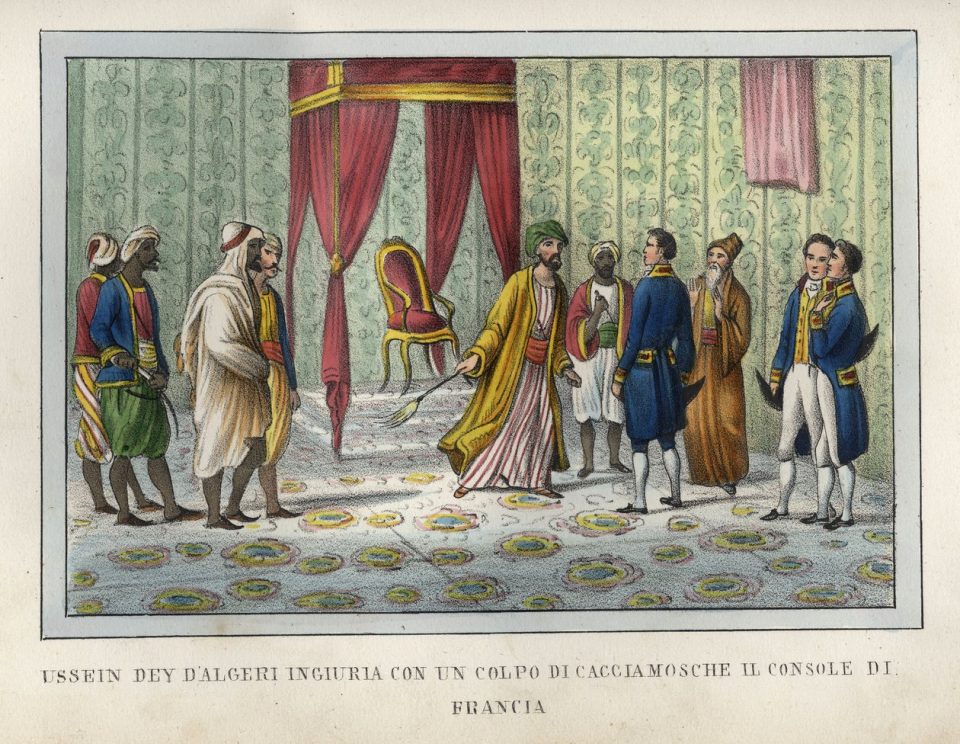Algeria maintained a fully functioning treasury supported by an organised tax system. Duties were collected on agricultural output, maritime activity and international trade. Customs revenues from major ports strengthened public finances, enabling the state to:
-
finance its naval forces,
-
maintain fortifications,
-
support public works,
-
and manage state expenditures with autonomy.
This financial capability allowed the country to negotiate treaties, pay debts and operate independently on the international stage.
A Developed Agricultural Economy
Agriculture formed the backbone of the economy, and Algeria was a leading producer in the region long before 1830.
Cereal Production
Wheat and barley were cultivated extensively across the Mitidja plain, the Chelif valley and the fertile eastern territories. These regions produced surpluses that were traded domestically and internationally.
Irrigation and Agricultural Technology
Farmers used advanced and efficient irrigation technologies adapted to Algeria’s varied climates. Oasis regions relied on foggaras and qanats, while coastal plains utilised wells, channels and terracing methods refined over generations.
Livestock and Complementary Production
Algeria also supported a significant livestock sector, producing wool, hides, dairy and meat. This diversified agricultural system strengthened food security and contributed to stable economic activity.
Diplomacy, Maritime Influence and International Recognition
Algeria’s strategic position made it an important diplomatic player in the Mediterranean. It maintained structured relations with European states, the Ottoman Empire and North African neighbours, but it also played an early role on the world stage with the emerging United States.
One of the First States to Recognise the United States of America
Algeria was among the first countries to formally acknowledge the independence of the United States. This recognition came through diplomatic and maritime agreements negotiated in the late 18th century, at a time when the US sought international legitimacy and protection for its ships.
Negotiations With American and European Navies
Algeria engaged in direct negotiations with:
-
American naval representatives,
-
British envoys,
-
French and Spanish diplomats,
-
and other European maritime powers.
These negotiations concerned navigation rights, trade agreements and the security of shipping lanes in the Mediterranean. They illustrate Algeria’s position as a sovereign actor capable of dealing with the world’s naval powers on equal footing.
Urban Centres, Learning and Social Organisation
Cities such as Algiers, Constantine, Tlemcen and Oran operated as hubs of administration, craftsmanship and learning. They maintained:
-
structured courts based on established legal schools,
-
schools, zawiyas, archives and libraries,
-
merchant organisations and trade guilds,
-
regulated markets and urban services.
These features demonstrate that pre-colonial Algeria had a sophisticated social and administrative fabric.
A Structured Country Misrepresented by Colonial Narratives
The portrayal of Algeria as lacking order or state institutions was a product of colonial propaganda designed to justify occupation. In reality, the country had:
-
structured governance,
-
ministerial-style administration,
-
a functioning treasury,
-
advanced agricultural systems,
-
diplomatic standing,
-
naval strength,
-
and a place in early international relations.
Far from being an unstructured society, Algeria before 1830 was an organised and sovereign state integrated into global networks and capable of managing its own affairs with clarity and stability.


